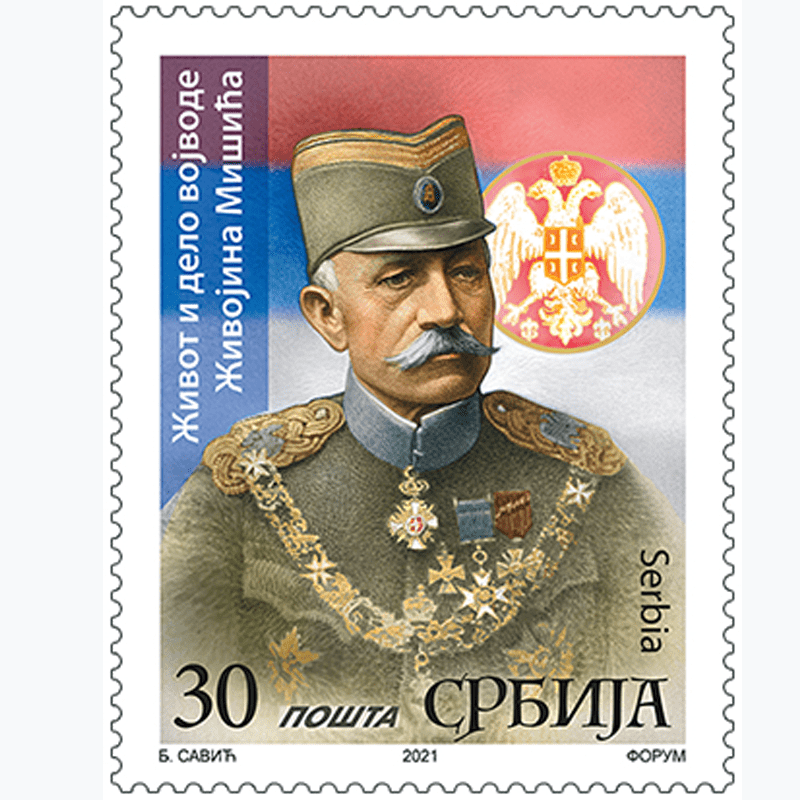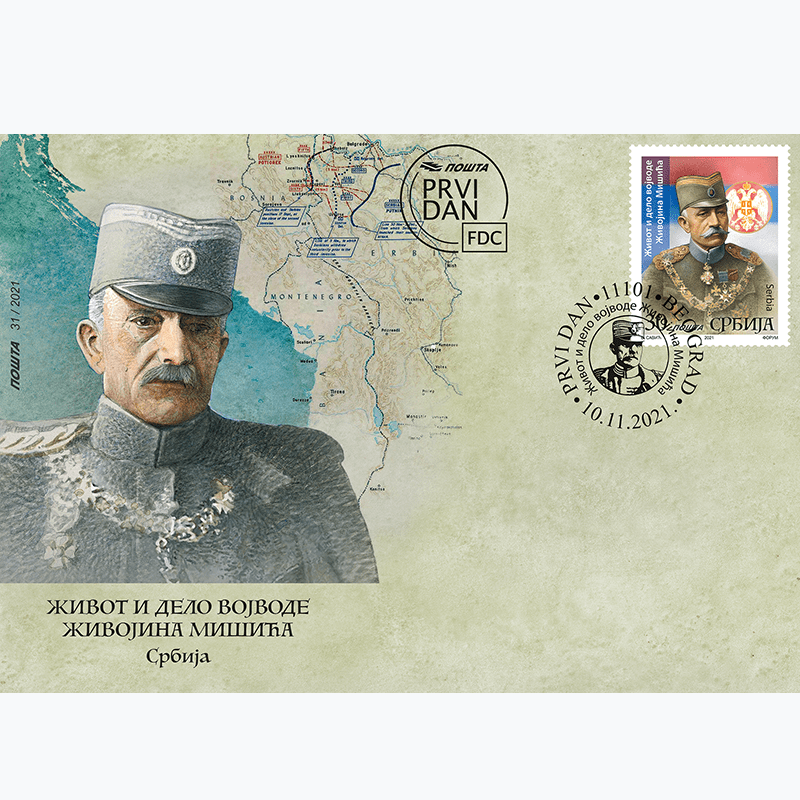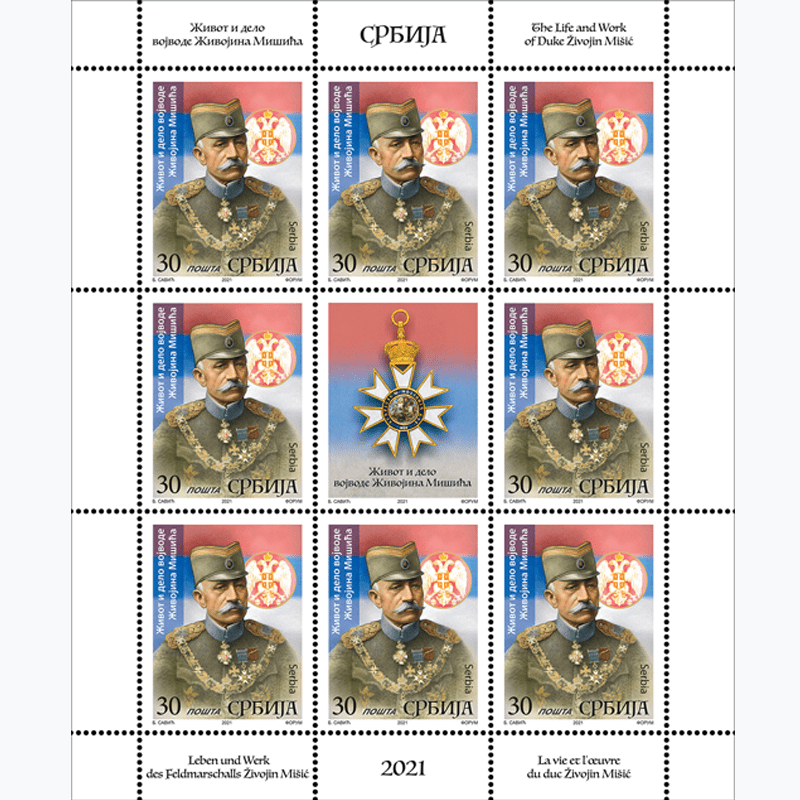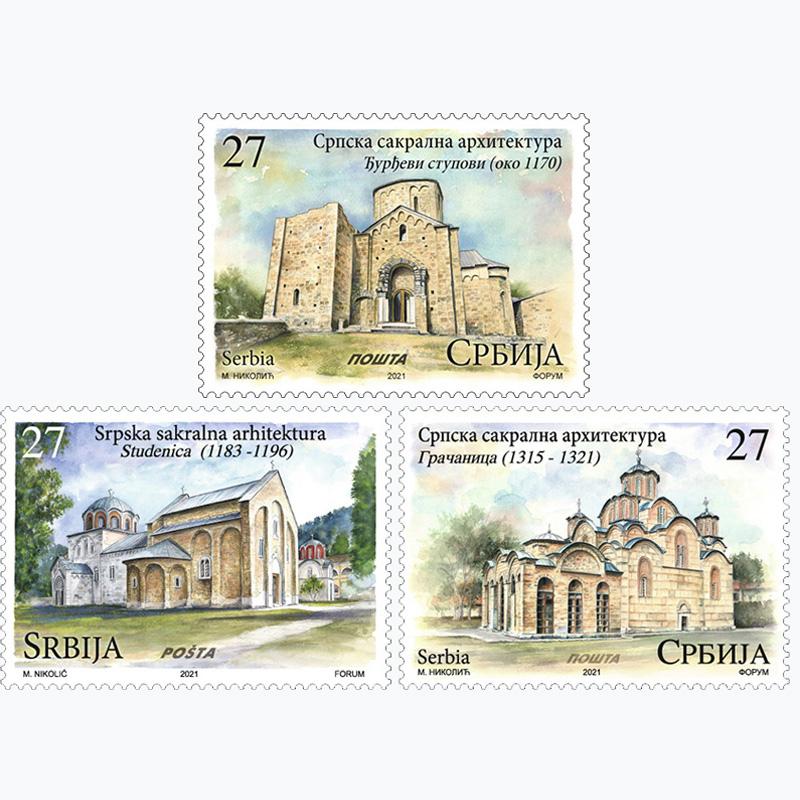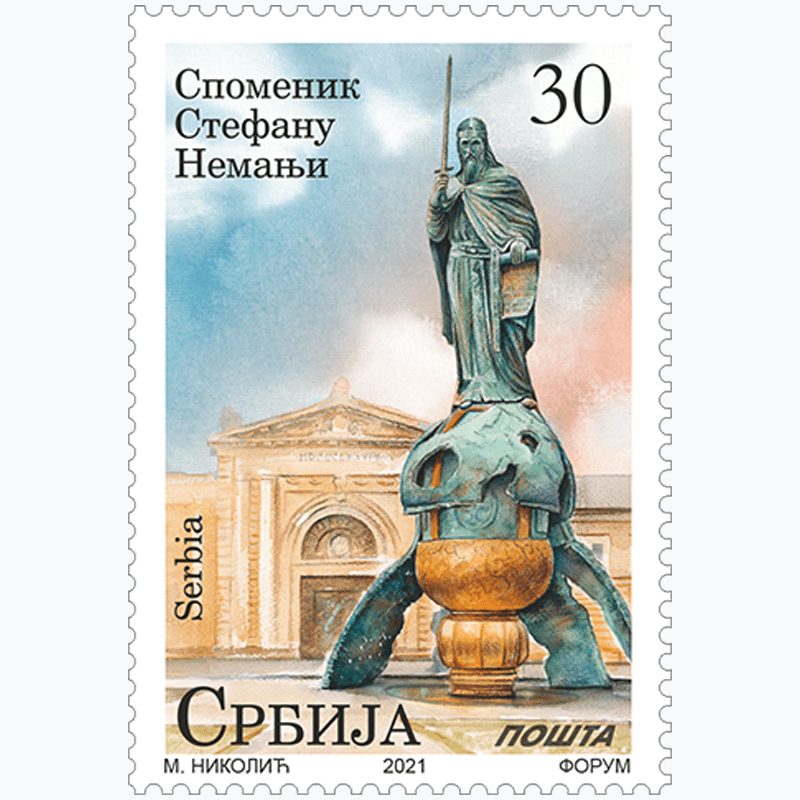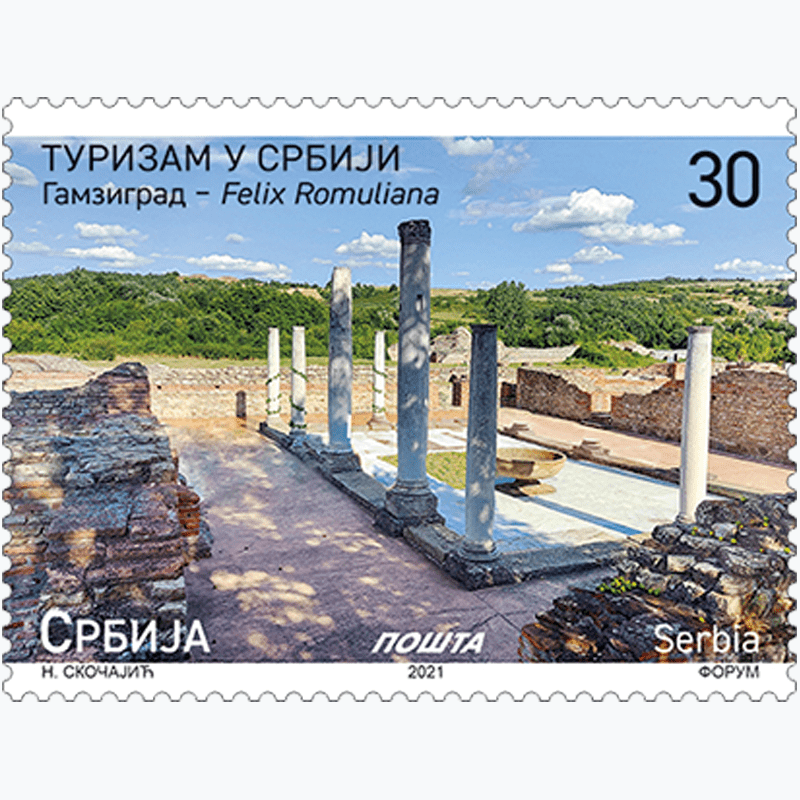Description
Živojin Mišić (Struganik near Mionica, 19 July, 1855 – Belgrade, 20 January, 1921), was born as the thirteenth child in the family of Radovan and Andjelija Mišić. He began his education in Ribnica, continued it in Kragujevac, and then in Belgrade, where, in 1874, he was admitted to the 11th class of the Artillery School (Military Academy). After two years of schooling, he gained his first war experiences as a cadet sergeant, later a lieutenant, in the Serbian-Turkish wars.
In addition to the Artillery School, he also graduated from the Austro-Hungarian School of Shooting in Bruck on Leitha and completed two years of preparation for the General Staff profession, and he also taught strategy at the Military Academy. He published the book “Strategy”. He retired for the first time after the May coup, but was reactivated in 1909, during the annexation crisis, at the personal request of the Chief of the Supreme Command, General Radomir Putnik, who appointed him assistant. In the Balkan wars, Mišić was the assistant chief of staff of the Supreme Command of General Putnik, and after the Battle of Kumanovo, he was promoted to the rank of general. After the end of the Second Balkan War, Mišić retired for the second time.
He was reactivated on the eve of the very beginning of the First World War and was appointed assistant chief of staff of the Supreme Command. During the Battle of Kolubara, General Mišić took command of the First Army and, thanks to his brilliant strategy, won the decisive battle. On 4 December, 1914, General Mišić was promoted to the rank of duke.
After retreating through Albania, Duke Mišić was removed from the position of army commander and sent to France for treatment. However, in the middle of 1916, he again took command of the First Army, and in June 1918 he was appointed Chief of Staff of the Supreme Command. He commanded the Serbian army during the breakthrough of the Thessaloniki front. During his forty-year military career, he was awarded 39 times, including the French Legion of Honour the First and Second Order for services in the liberation of Bitola, and King George V of England awarded him the Order of St. Michael and George, one of the highest British decorations. Živojin Mišić was one of the most important military strategists of the 20th century, the most famous military leader of the First World War and Serbian war history and a legend of the Serbian people.
